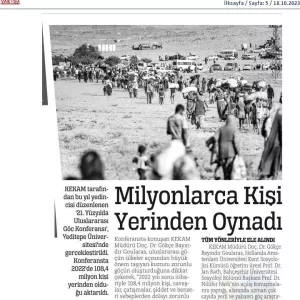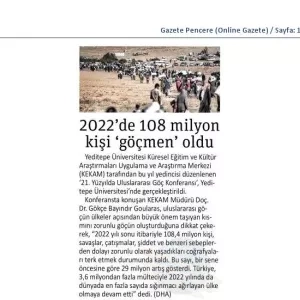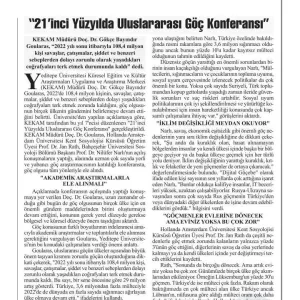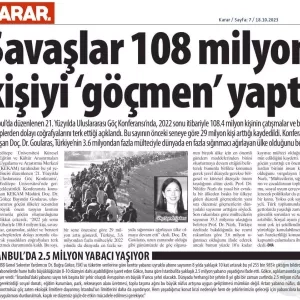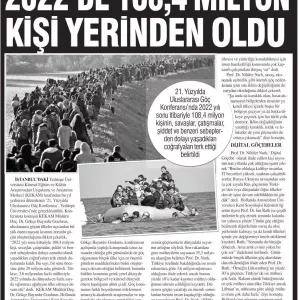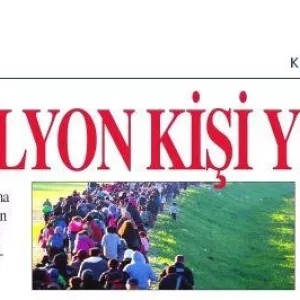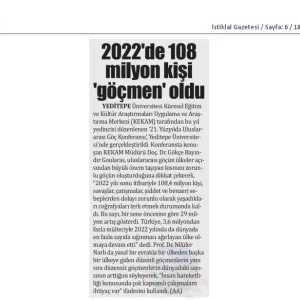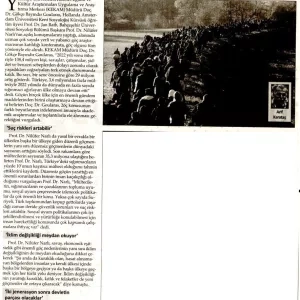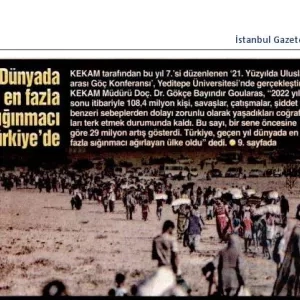Assoc. Prof. Dr. Gökçe Bayındır Goularas: "The Migration Phenomenon Continues to Define the Agenda of Many Countries"
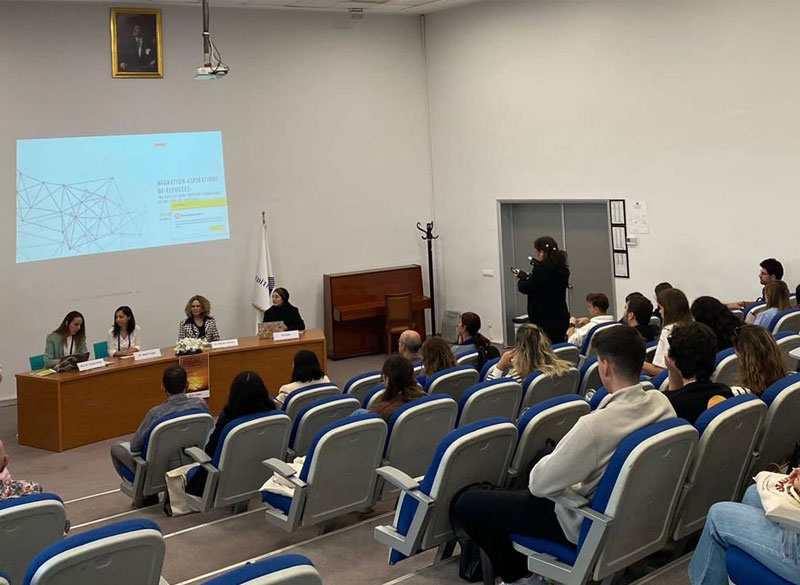
Assoc. Prof. Dr. Gökçe Bayındır Goularas:
"The Migration Phenomenon Continues to Define the Agenda of Many Countries"
KEKAM Director Assoc. Prof. Dr. Gökçe Bayındır Goularas stated that 108.4 million people had to leave their homeland due to wars, conflicts, violence, and similar reasons in 2022 and that the phenomenon of migration continues to determine the agenda of many countries.
The 7th “21st Century International Migration Conference,” organized by Yeditepe University's Global Education and Cultural Studies Research and Application Center (KEKAM), was held at Yeditepe University. The opening speeches were delivered by KEKAM Director Assoc. Prof. Dr. Gökçe Bayındır Goularas, Prof. Dr. Jan Rath from the Chair of Urban Sociology at the University of Amsterdam, and Prof. Dr. Nilüfer Narlı, Chair of Sociology Department at Bahçeşehir University. The conference, attended by numerous domestic and international migration researchers and experts, comprehensively discussed the phenomenon of migration.
"It Should Be Addressed Through Academic Research"
In her opening speech at the conference, KEKAM Director Assoc. Prof. Dr. Gökçe Bayındır Goularas emphasized that migration remains one of the most significant agenda items for many countries, just as it has been for a long time. She underlined the importance of the issue both locally and on regional and global levels. Goularas highlighted the need to address different aspects of migration through academic research and meetings, highlighting the significance Yeditepe University places on these studies.
Assoc. Prof. Dr. Gökçe Bayındır Goularas also drew attention to the critical aspect of international migration represented by forced migration. She noted, “As of the end of 2022, 108.4 million people were forced to leave their geographies due to wars, conflicts, violence, and similar reasons. This figure shows an increase of 29 million compared to the previous year. With more than 3.6 million refugees, Türkiye continued to be the country hosting the largest number of asylum seekers in the world in 2022.”
"Comprehensive Studies Needed"
Prof. Dr. Nilüfer Narlı mentioned that in addition to regular migrants who move from one country to another with legal documentation, the number of irregular migrants worldwide is increasing. She stated that the latest figures indicate the number of refugees has reached 35.3 million. Focusing on Turkey, she mentioned that according to official statistics, there are 3.6 million asylum seekers, but it is estimated that about 10% of these are unregistered refugees. Prof. Dr. Narlı emphasized one of the most significant problems created by irregular migration is human trafficking. Narlı added, “The integration of refugees, asylum seekers, and their children into society, and the policies to be followed within the framework of social integration are critical issues. Otherwise, if a large number of Syrians become isolated from Turkish society and live in ghettos, this could lead to increased security issues and crime risks in the future. Comprehensive studies are needed on human mobility to shape and implement effective social integration policies properly.”
"Climate Change is Challenging"
Prof. Dr. Nilüfer Narlı highlighted the challenges posed by climate change as a significant factor in migration, alongside war and economic inequality. She stated, "Currently, people from regions experiencing drought and failed harvests are either relocating within their own country or attempting every possible way to move to another country. The drought, famine, and disasters caused by climate change will also create new waves of migrants."
"Digital Nomads are on the Rise"
Prof. Dr. Nilüfer Narlı highlighted the significant increase in the number of individuals known as "Digital Nomads" in recent years, stating, "These are highly skilled individuals with strong IT capabilities who can work remotely. After the Russia-Ukraine war, we've observed many Russian immigrants continuing their work from Türkiye or other countries around the world."
"Migrants will return home, but it's very difficult if you don't have a home"
Prof. Dr. Jan Rath from the Urban Sociology Department at the University of Amsterdam discussed the complexity of migration, highlighting that only 3% of those who need to migrate due to various reasons do so, with the rest preferring to remain in their country or move within it, even in times of war. He noted, "Eventually, many will return, but returning is difficult if you no longer have a home. "Prof. Dr. Rath also touched on the impact of migration flows on numerous countries today. "For instance, 30% of Luxembourg's population are immigrants, while Türkiye hosts many refugees. Although Türkiye hosts the largest number of refugees in absolute numbers, Lebanon hosts a larger proportion relative to its population."
Furthermore, Prof. Dr. Rath provided insights into how the Netherlands approaches the issue of immigration. "In the Netherlands, the definition of an immigrant and a problematic immigrant can differ. Although immigrants are currently a subject of debate, in two generations, they will be considered integral parts of the state."
